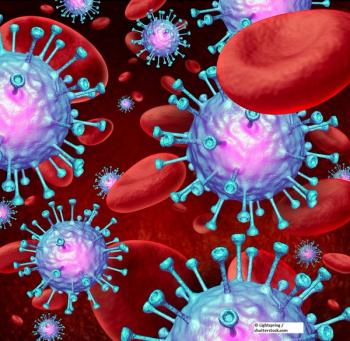
Patients treated with anti–PD-1 or anti–PD-L1 inhibitors in clinical trials were successfully retreated with the inhibitors after discontinuing the treatment.

Your AI-Trained Oncology Knowledge Connection!


Patients treated with anti–PD-1 or anti–PD-L1 inhibitors in clinical trials were successfully retreated with the inhibitors after discontinuing the treatment.
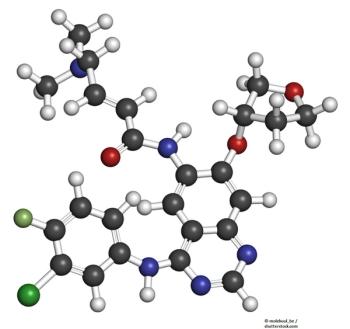
A laboratory study found that combining anti-HER2 TKIs with trastuzumab and pertuzumab can result in enhanced anticancer activity in HER2+ breast cancer cell lines.

Internal mammary chain radiation therapy for breast cancer is associated with increased cardiac toxicity, in particular when paired with anthracyclines.

Many breast cancer patients report that clinicians do not engage adequately regarding management of financial toxicity associated with their diagnosis, according to a new survey.
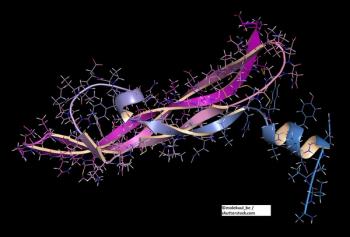
The addition of bevacizumab to adjuvant chemotherapy regimens does not improve survival in women with high-risk breast cancer.
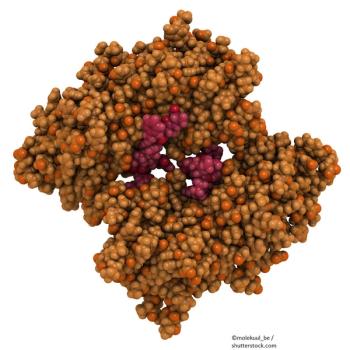
Germline BRCA mutations and other HR genes may offer biomarkers for response to this treatment.

The gardening intervention led to improvements in physical activity measures and other health outcomes in breast cancer survivors.

An update to guidelines from ASCO on the optimal management of patients with HER2+ breast cancer offers recommendations on timing and sequence of therapies.
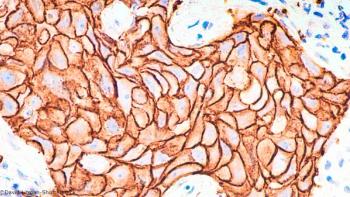
Direct measurements of TRBV genes could provide a biomarker to predict response to dual HER2 blockade in women with HER2-positive breast cancer.

The inverse association with premenopausal breast cancer was seen across the entire distribution of BMI, and at a higher magnitude than previously reported.

The trastuzumab biosimilar ABP 980 showed noninferiority to trastuzumab in a large trial of patients with early HER2-positive breast cancer.
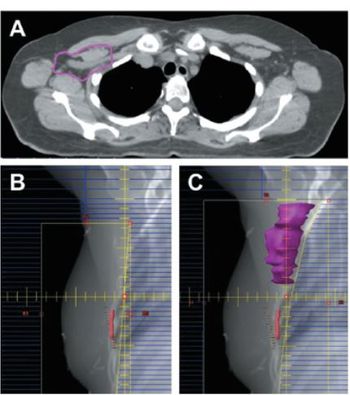
This article discusses the ways in which pathologic regional nodal status affects clinical decisions about locoregional and systemic treatment, reviews published literature and guidelines, and aims to provide a practical perspective on treatment approach in the face of a broad range of data and recommendations.
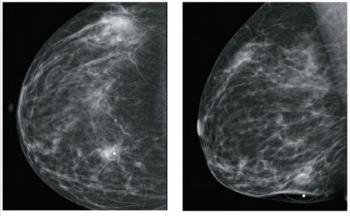
A 35-year-old woman noticed a mass in her right breast and underwent a diagnostic workup, including a mammogram that revealed a 2.4-cm mass and ultrasound that showed two adjacent masses, as well as enlarged axillary lymph nodes.

Nab-paclitaxel/carboplatin should be considered a first-line option in the setting of triple-negative breast cancer.

The HER2 TKI tucatinib plus capecitabine or trastuzumab were reasonably well tolerated and showed antitumor activity in a phase I trial of HER2+ breast cancer.

The D-CARE study found adjuvant denosumab is devoid of benefits in high-risk early breast cancer.

The combination of the PARP inhibitor olaparib with the mTORC1/2 inhibitor vistusertib had promising activity across endometrial, ovarian, and triple-negative breast cancers.

The addition of abemaciclib to fulvestrant significantly improved PFS and time to subsequent chemotherapy in pre- and perimenopausal HR-positive/HER2-negative breast cancer patients.

The combination of ribociclib and fulvestrant yielded an improvement in progression-free survival in postmenopausal women with advanced breast cancer, according to the MONALEESA-3 trial.

Several different driver mutations acquired during treatment for breast cancer can help explain acquired resistance to the combination of palbociclib and fulvestrant.

Tumor gene expression testing identifies women with certain early-stage breast cancers who can safely skip chemotherapy.

The PI3K inhibitor taselisib offered less dramatic clinical benefits than anticipated, and with significant toxicities.

Ribociclib plus endocrine therapy resulted in improved PFS in premenopausal women with HR+, HER2− advanced breast cancer.

Researchers have developed a “disease screening pill” that could allow for a noninvasive and safe method for detecting breast cancer using only near-infrared light.
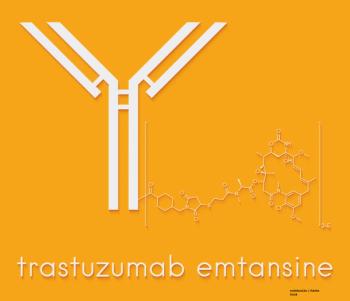
Women with HER2-positive early breast cancer achieved similar disease-free survival with 6 months of adjuvant trastuzumab compared with a 12-month duration, according to the phase III PERSEPHONE trial.